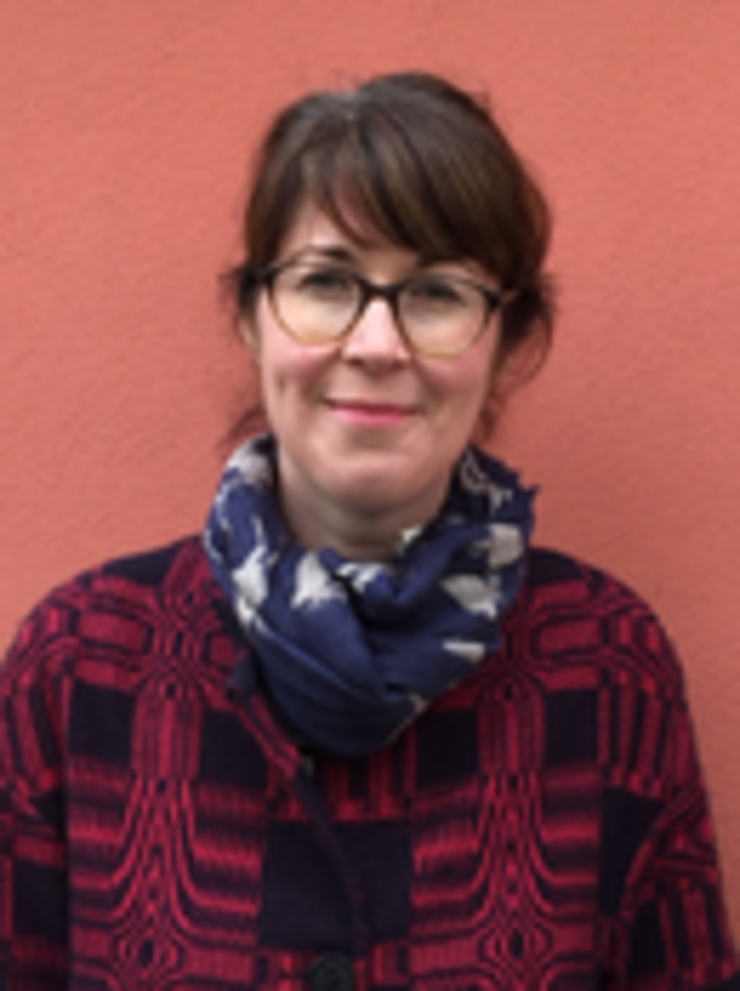Dr. Camilla Smith

Ehemalige Fellow
Fellow am Max-Weber-Kolleg von September 2018 bis August 2019
Zur Person
Curriculum Vitae
Since 2008, Lecturer in History of Art, Department of Art History, Curating and Visual Studies, University of Birmingham, UK.
My work has been financially supported by the Deutscher Akademischer Austausch Dienst e.V. (DAAD) and the Art and Humanities Research Council (AHRC), with a previous fellowship at the Yale Center for British Art in the US.
Forschungsprojekt
Inner Emigration: Exploring the Artistic Identity of Women Artists under Totalitarian Regimes 1933-1989
My research at the Max-Weber-Kolleg explores the field of cultural production of women artists in inner emigration under totalitarian regimes. Since 1945, 'inner emigration' has been a contested term in the large interdisciplinary field of Exile Studies, but it has neither been explored with particular reference to gender dynamics nor seen as a 'third position', which is a nuanced, situational alternative to the extreme positions of opposition and conformism under totalitarian regimes (Haftmann, 1986; Krohn, 1994; Marks-Hanßen, 2006). Such an understanding of inner emigration will bring to the fore entangled histories which seek to move beyond reductive narratives of single, straight-forward fixated life stories. The exploration of two groups of artists working under two different political systems, namely National Socialism and the German Democratic Republic (GDR), will reveal patterns, as well as individual resonances to totalitarianism. It will thus contribute to a better understanding not only of inner emigration, but also the extreme positions of opposition and conformism.
My comparative study focuses on the work of four inner émigré women artists.
These artists worked across a variety of artistic media and operated in and outside of artistic networks, such as the Verein der Berliner Künstlerinnen (1867-) and the Erfurter Künstlerinnengruppe (1984-94).
Through combined cultural, sociological and feminist approaches, I will compare their works, working experiences, biographic narratives and networks in order to gain a deeper understanding of how professional women artists operated, negotiated and survived under oppressive regimes. The underlying questions are:
- If 'inner ‘exile’ is understood as the social position a priori from which women operate on a day-to-day basis (Berger, 1987), how does this position relate to the narratives of women living in inner emigration (forced or by choice) under totalitarian regulation of ideologically-inflected gender dynamics?
- How are their narratives reflected, camouflaged or subverted between the individual and the institutional?
- In what ways did these artists exercise agency and promote their own intricate political, intellectual and aesthetic agendas within and outside of totalitarian structures, and how and what do their artworks resonate - to themselves and others?
Without losing historic and biographic specificity, studying a group of women artists comparatively will help to establish an understanding of overarching strategies and structures of negotiation with regards to social and artistic praxis and Lebensgestaltung (Trappe, 1995) under different totalitarian regimes. In doing so, this research will explore questions of structure and agency in relation to the individual, institutions and the state with specific reference to the social condition of inner emigration. This in turn will provide the foundation for a theoretical framework with which to investigate how individuality is negotiated under totalitarian social policies.
Publikationen
- Camilla Smith, (article) ““Was nicht im Baedeker steht”: Exploring Art, Mass Culture and Anti-tourism in Weimar Germany’, New German Critique, vol. 45, No. 1, February (2018) Duke University Press
- Camilla Smith, (exhibition catalogue chapter) 'Jeanne Mammen- Negotiating the Hitler State as an Inner Émigré 1933-1945' in Annelie Lütgens & Thomas Köhler, eds, Jeanne Mammen. The Observer. Retrospective 1910-1975 October 6, 2017 – January 15, 2018, Kerber Verlag, Bielefeld, 2017, (German and English editions).
- Camilla Smith, (and co-editor with Dorothy Price) ‘Sex Sells! The Gurlitt Empire, Erotic Print Culture and Women Artists in the Weimar Republic,’ in Art History, Special Issue: Weimar’s ‘Other’: Visual Culture in Germany after 1918, vol. 41, no. 2, (2019), Wiley-Blackwell (Forthcoming)

